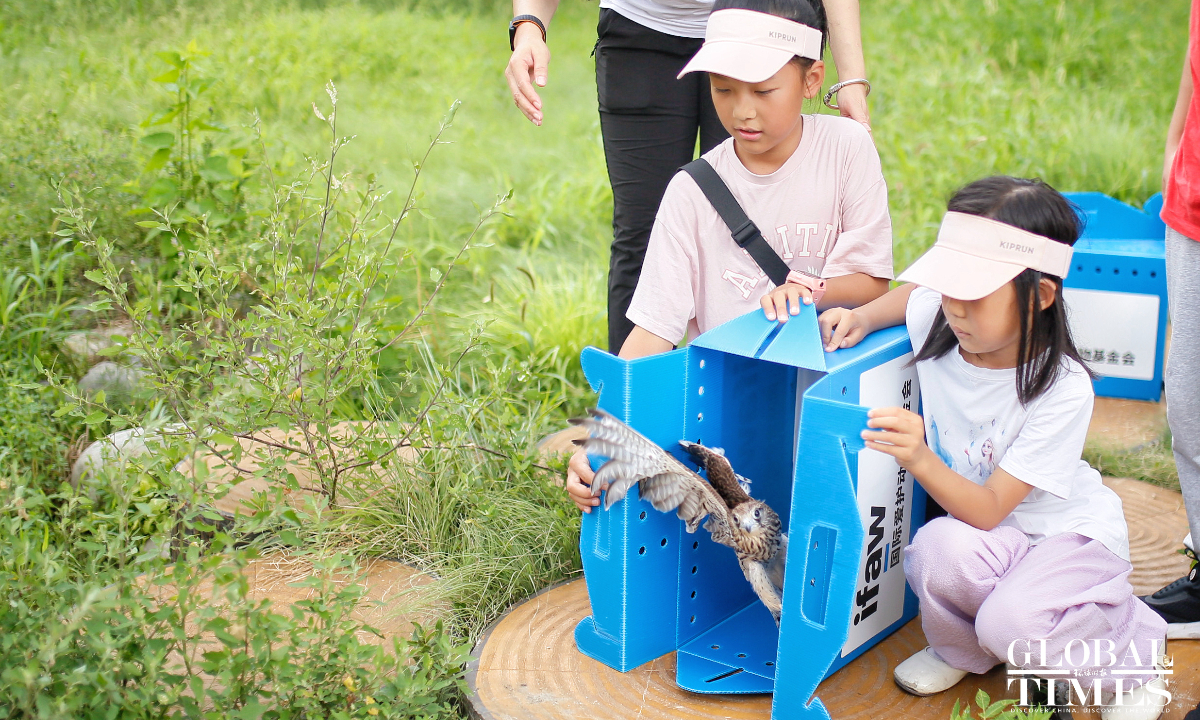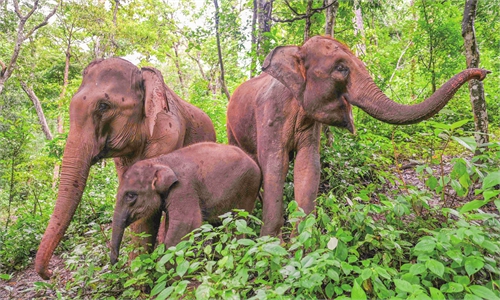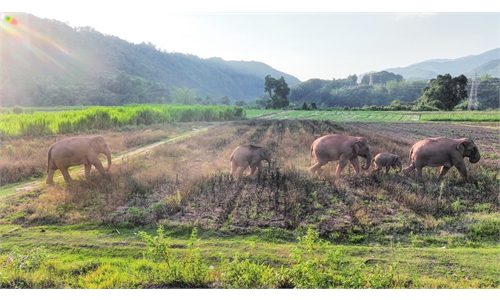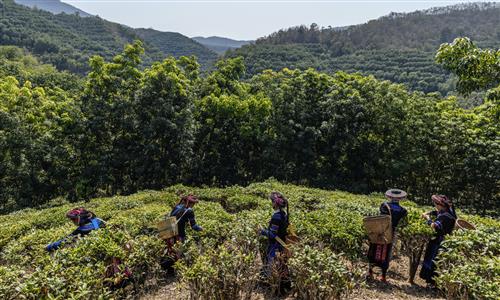
Photo: Shan Jie/GT
Some took off immediately while others hesitated – eight common kestrels (Falco tinnunculus) rescued by Beijing citizens took to the sky on China’s National Ecology Day.
On Thursday morning, the Beijing Raptor Rescue Center (BRRC) successfully released eight kestrels, a species classified as a national second-class protected animal, into the wild at the Nanyuan Forest Wetland Park in southern Beijing, highlighting achievements in ecological civilization.
Over a dozen raptor rescuers and their families were invited to participate in the collective release to witness the moment the kestrels, raised at the center, took their first flight into the blue sky.
Dong Yumei, one of the participants, personally released a kestrel on Thursday. She recounted her experience: “I live in Wukesong in western Beijing. In June, a kestrel fell on the ground in our community. I took care of it for a week, feeding it chicken breast and beef since I figured it was a meat-eating bird.”
“After some research, I found out it was a kestrel. My 13-year-old grandson said we should let it go, that it shouldn’t be kept at home,” she told the Global Times. The family then contacted the BRRC. “I was reluctant to let it go, but I knew it was the right thing to do,” she said.
The eight common kestrels were all rescued by local residents over the last three months.

Photo: Shan Jie/GT
On June 17, community workers near Guanzhuang Road in Beijing discovered a young kestrel that had fallen from its nest and immediately contacted the BRRC for rescue. Over the following week, two more young kestrels of similar age were found and rescued in the same community.
On July 1, a rescuer surnamed Su discovered a young raptor in the Science Park in Changping district, Beijing. Although she observed other nestlings in a nearby building, there was no sign of the chicks’ parents.
Su noted that while it is usually best for parent birds to continue caring for their young, the nest was too high for the fledgling to return, and she was concerned about the dangers it might face near the roadside. Therefore, she contacted the BRRC for help.
The other six kestrels released on Thursday also had similar experiences of falling from their nests. They were rescued from various locations, including roads, community streets, and buildings, with some even being found by concerned citizens who contacted the police for assistance.
“In Beijing, the breeding season for birds runs from April to July, which is also the busiest time of the year for raptor rescue,” said Zhou Lei, a senior raptor rehabilitator at the BRRC. “During this period, we receive a large number of raptor nestlings. This year alone, we have rescued 80 young raptors. These eight kestrels had very similar rescue stories; most fell to the ground during their first attempts at taking flight, as they were not yet fully capable. Additionally, this year’s extreme weather and strong winds have posed further challenges to their survival.”
Zheng Zhishan, the manager of the BRRC, expressed gratitude to the rescuers for their prompt and scientific assistance, saying, “Thanks to their timely and knowledgeable efforts, these kestrel chicks have been given a second chance to return to the sky.”
Beijing is not only a habitat for many raptors but also a crucial stopover on their migration routes. Raptors play a vital role in maintaining environmental health and ecological balance. In China, all species of raptors are listed as national first- or second-class protected wildlife. To date, the BRRC has rescued over 6,000 raptors spanning 40 species.
Founded in December 2001, the BRRC is a non-profit wildlife rescue organization established by collaborating with Beijing Normal University and the International Fund for Animal Welfare (IFAW). The center is dedicated to rescuing raptors using scientific methods and high animal welfare standards while supporting the government’s efforts to promote raptor rescue and conservation in China.




